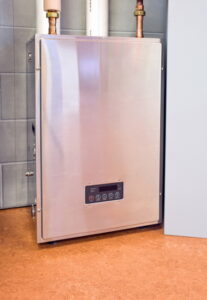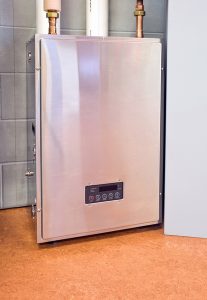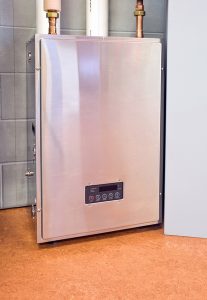We are big advocates for tankless water heaters at Reliance. Installing a tankless unit in a house is a great way to cut down on energy costs—keep in mind that a home’s water heater consumes more power than almost any other appliance. Tankless water heaters also save space, last for years longer, and have the benefit of never running out of hot water.
There are downsides to tankless water heaters compared to more traditional water heaters, however. One is the initial cost of installation. A tankless water heater can pay back that initial cost in a few years, but it can present a barrier for some homes. In addition to the price tag, tankless water heaters can’t always be simply snapped into place after taking out the home’s older water heater. The home may need several plumbing and electrical upgrades to accommodate the new water heater. We’ll look at several below.


 Few appliances in a home use up as much power as the water heater. Heating and air conditioning systems account for significant power consumption, but these are seasonal appliances. A water heater will run almost every day, and whether it’s an electric or gas-powered unit, it’s probably the biggest source of energy consumption in your house.
Few appliances in a home use up as much power as the water heater. Heating and air conditioning systems account for significant power consumption, but these are seasonal appliances. A water heater will run almost every day, and whether it’s an electric or gas-powered unit, it’s probably the biggest source of energy consumption in your house. Has it come time to replace the water heater in your home? Perhaps yours has broken down, or you’re tired of paying for frequent repairs. Whatever the reason is that you’re looking to schedule a water heater replacement, remember that there are options to consider. There’s no rule that you have to stick with the same type of water heater you’ve always had.
Has it come time to replace the water heater in your home? Perhaps yours has broken down, or you’re tired of paying for frequent repairs. Whatever the reason is that you’re looking to schedule a water heater replacement, remember that there are options to consider. There’s no rule that you have to stick with the same type of water heater you’ve always had. Something that we often recommend to our customers is a
Something that we often recommend to our customers is a